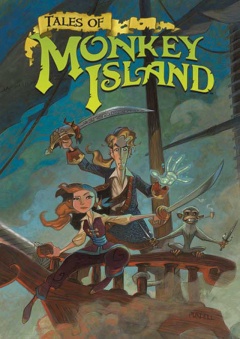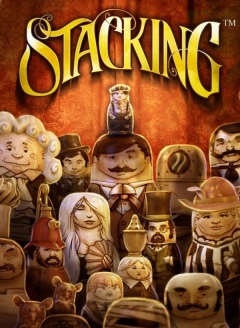psn
Divekick
Sometimes the simplest things in life can be the best. And while sometimes you need fifteen buttons to play a game, sometimes you only need two. Today we'll be reviewing the two-button fighting game, Divekick. Originally envisioned and created by a tiny team of gamers in the fighting game community, Divekick seeks to break down the complex fighting game into a single move, a jumping downwards kick (or divekick). First conceived very late at night after a tournament ("hey, wouldn't it be hilarious to make a game where you can only divekick?"), it ran through a successful kickstarter campaign, cancelled that campaign since they found a publisher, successfully got greenlit on Steam, and now released on Steam/PSN/Vita. Not bad at all for its origins.
Counter-Strike: Global Offensive
It's been a long while since I've written a review, which is pretty commonplace due to my busy schedule. But as my days have cleared up due to seriously inclement weather, I figured I'd write a review. Not just a review, but a review on a game in a series that I am in love with. This is something I had been saving and looking forward to for the right time.
Unfortunately though, this didn't pan out like I had hoped. This is hard for me to write. Not just because of the fact it's a multiplayer experience I'm reviewing, but also because it's a dream of mine being crushed.
As I've mentioned before, I was a pretty avid player of Counter Strike, and much more so, Counter Strike: Source. My father and I played CS: Source from around 2005 until 2007. We were in a clan, competitively. (The name of it was Exemplar Sect, best player was Pug.) Anyway, we loved that game, and I remember upgrading computer parts all of the time to increase framerates, and every weekend was a Mountain Dew fueled weekend of meeting people all over the world and killing them. But then other games became popular (I played Battlefield: Bad Company 2 quite a bit.) and I went over to them, but I always visited CS: Source, and always had a blast.
Eufloria
 Originally known as Dyson during its prototype stage, Eufloria is self-described as a "space gardening RTS." What that means is not very clear without some description, but in essence, Eufloria is about growth and destruction. Building up your own spores of pollen to seed across the galaxy and wreack havoc on your enemies. Any tree not your color is marked for death and total domination is necessary for your own survival.
Originally known as Dyson during its prototype stage, Eufloria is self-described as a "space gardening RTS." What that means is not very clear without some description, but in essence, Eufloria is about growth and destruction. Building up your own spores of pollen to seed across the galaxy and wreack havoc on your enemies. Any tree not your color is marked for death and total domination is necessary for your own survival.
Well, that might sound cooler than it actually is, but Eufloria is our latest go-around at Indie Impressions. Developed by a trio of indie devs, Eufloria was released in 2009 for Windows and later released on Linux, OSX, iOS, Android, and PlayStation Network. Here is Steve and Greg's take on the game after playing a few hours.
Retro City Rampage
 When I rented the Harvey Birdman: Attorney at Law
video game a few years ago, I learned that some comedy has a minimum
speed limit. I loved the rapid surrealist gags in the Adult Swim
cartoon, but fifteen minutes was all I could take of the same humor
decelerated to account for player input. What worked at twenty jokes per
minute just didn’t translate to a relaxed visual novel speed.
When I rented the Harvey Birdman: Attorney at Law
video game a few years ago, I learned that some comedy has a minimum
speed limit. I loved the rapid surrealist gags in the Adult Swim
cartoon, but fifteen minutes was all I could take of the same humor
decelerated to account for player input. What worked at twenty jokes per
minute just didn’t translate to a relaxed visual novel speed.
Retro City Rampage has taught me that the funny/fast correlation works both ways. What was shaping up to be a parade of lazy puns and toothless parodies is acceptable entertainment when marched at a sprinter’s pace. It’s all in the delivery.
And Rampage delivers ‘80s nostalgia in spades. From head to toe, the game is decked out in pop culture knockoffs. You’ll accept missions from Principal Belding, find Game Genie codes, and change your appearance in a Michael Jackson facelift shop...with slight alterations that abide by intellectual property laws, of course.
Tales of Monkey Island: Rise of the Pirate God
 As the first Monkey Island game in nine years, fans had high expectations for Tales of Monkey Island. Not only is the series one of those coveted, highly nostalgialized, fan favorites from our youth, but the last game, Escape from Monkey Island, simply wasn’t that good. There were a lot of questions whether Guybrush Threepwood is even funny in three dimensions as it had been tried and failed once already.
As the first Monkey Island game in nine years, fans had high expectations for Tales of Monkey Island. Not only is the series one of those coveted, highly nostalgialized, fan favorites from our youth, but the last game, Escape from Monkey Island, simply wasn’t that good. There were a lot of questions whether Guybrush Threepwood is even funny in three dimensions as it had been tried and failed once already.
I certainly had my doubts, I had never played an episodic game before Tales of Monkey Island, so even the delivery method was questionable. I know that TellTale Games has had great success with season gaming, but would it work with Monkey Island? Would the episodes be too long? Too short? Too reliant on cliffhangers? Could a writing staff still capture Guybrush, Elaine, and Chuck?
Five episodes later, I have my definitive answer to all of these questions. Rise of the Pirate God serves as not only the finale for the season, but once again, could be the final chapter in Monkey Island’s 20 year history. Let’s talk first about the episode, and then the series as a whole.
Tales of Monkey Island: The Trial and Execution of Guybrush Threepwood
 After the excellent Lair of the Leviathan episode, I was totally expecting the quality to fall in back to Tales of Monkey Island’s previous levels, good comedy, but not Monkey Island comedy. Thankfully, The Trial and Execution of Guybrush Threepwood manages to sustain most of the momentum of Leviathan in a well written romp that sets out a few pretty unique puzzles for our hero.
After the excellent Lair of the Leviathan episode, I was totally expecting the quality to fall in back to Tales of Monkey Island’s previous levels, good comedy, but not Monkey Island comedy. Thankfully, The Trial and Execution of Guybrush Threepwood manages to sustain most of the momentum of Leviathan in a well written romp that sets out a few pretty unique puzzles for our hero.
So far I’ve really been enjoying Tales of Monkey Island, it isn’t as good as the first three games in the series, but is really well done as an episodic adventure. Breaking out the island hopping into their own chapter has always fit well with Monkey Island, and allows the writers to create more natural cliffhangers and mini-conclusions.
The Trial and Execution of Guybrush Threepwood features a few of its own surprises, which I’ll definitely spoil in the following few paragraphs, if you’re reading this far I guess I’m assuming you’ve either already played the season or don’t care about spoilers at this point.
Tales of Monkey Island: Lair of the Leviathan
 Finally, a hilarious, superbly written, well-rounded entry into Tales of Monkey Island. The first two episodes felt like Monkey Island on the surface, but were lacking in key areas. Lair of the Leviathan may well be the smallest scoped chapter so far, but is highly focused and downright entertaining from beginning to end.
Finally, a hilarious, superbly written, well-rounded entry into Tales of Monkey Island. The first two episodes felt like Monkey Island on the surface, but were lacking in key areas. Lair of the Leviathan may well be the smallest scoped chapter so far, but is highly focused and downright entertaining from beginning to end.
Lair of the Leviathan is the middle child of the series, and TellTale Games could have certainly phoned the it in; most gamers playing this far are probably in it for the long haul, and with an explosive ending in mind, we would have forgotten the stuff in between point A and point B. But writer Sean Vanaman brought the goods and we got a memorable treat.
As I write this, The Walking Dead series from TellTale Games is receiving rave reviews for its own third episode, and while part of me wishes I was keeping up with that series instead of diving into Tales of Monkey Island, I’m very happy to finally be playing the three year old game in one of my favorite series of all time. Better late than never.
Tales of Monkey Island: The Siege of Spinner Cay
 Tales of Monkey Island is my first foray into episodic gaming, but considering the season was finished nearly three years ago, I’m not exactly playing the game as it was originally intended. But considering plenty of people see blockbusters for the first time outside the theater, television seasons are consumed in two or three sittings, and classic rock albums are downloaded one song at a time, it should be expected that good media is good media no matter how it’s delivered.
Tales of Monkey Island is my first foray into episodic gaming, but considering the season was finished nearly three years ago, I’m not exactly playing the game as it was originally intended. But considering plenty of people see blockbusters for the first time outside the theater, television seasons are consumed in two or three sittings, and classic rock albums are downloaded one song at a time, it should be expected that good media is good media no matter how it’s delivered.
Now that I’m used to the controls and inventory system, my experience with the second episode went a lot smoother. I’m still feeling a bit underwhelmed by the whole thing, however, but have come to the conclusion that the episodic delivery is a good mechanism for not only Monkey Island, but the point and click adventure genre as a whole.
Siege of Spinner Cay kicks off, unsurprisingly, right where Launch of the Screaming Narwhal ended. TellTale Games squeezed in a little cliffhanger at the end of episode one to remind you not everything is okay, and honestly, it immediately pays off.
Tales of Monkey Island: Launch of the Screaming Narwhal
 After 2000’s somewhat disastrous Escape from Monkey Island, I was rather leery on returning to my beloved childhood point and click adventure series. Monkey Island 2: LeChuck’s Revenge was the first game I ever played in the genre, and The Curse of Monkey Island is still in my top 10 games of all time.
After 2000’s somewhat disastrous Escape from Monkey Island, I was rather leery on returning to my beloved childhood point and click adventure series. Monkey Island 2: LeChuck’s Revenge was the first game I ever played in the genre, and The Curse of Monkey Island is still in my top 10 games of all time.
LucasArts wasn’t too excited on bringing back Guybrush Threepwood either, but in 2009 thanks to TellTale Games, began publishing the five episodes of Tales of Monkey Island, beginning with Launch of the Screaming Narwhal. TellTale Games is the most successful episodic gaming developer around, and they seem to thrive when given an existing IP to adapt into their release format. Tales of Monkey Island would go on to become their best-selling series at the time.
I’ll be reviewing each episode individually as if they were being released one at a time. There’s a few reasons for this: if an episode really sucks, will I want to play on? I like the idea of being able to quit at any time. Plus, I’m a big fan of getting my ideas down on paper sooner than later, and feel like I can give each episode the time it deserves by reviewing it immediately.
Stacking
 Well, this has been a long time coming.
Well, this has been a long time coming.
Stacking came out for Xbox Live and PlayStation Network in early 2011, and it immediately captured my interest. With characters based on the Russian stacking matryoshka dolls and the narrative devices of silent films of yesteryears, it was definitely a unique offering, though looking over Double Fine Productions’s history it’s clear that that’s their thing. Quirky mish-mashes: RTS and musical influences for Brütal Legend, Halloween outfits and RPG elements for Costume Quest, and summer camp and psychic abilities for Psychonauts. However, I just never got around to getting it due to my severe distaste for buying Microsoft Points, since the conversion rate of USD dollars to Space Bucks never seems to be in the buyer’s favor.
Flash-forward to July 2012, and the Steam Summer Sale has now concluded. I was able to snag this bite-sized adventure for a cool couple of bucks, as well as a slew of other titles. But for now, let’s play with dolls for an hour and see how things turn out.


